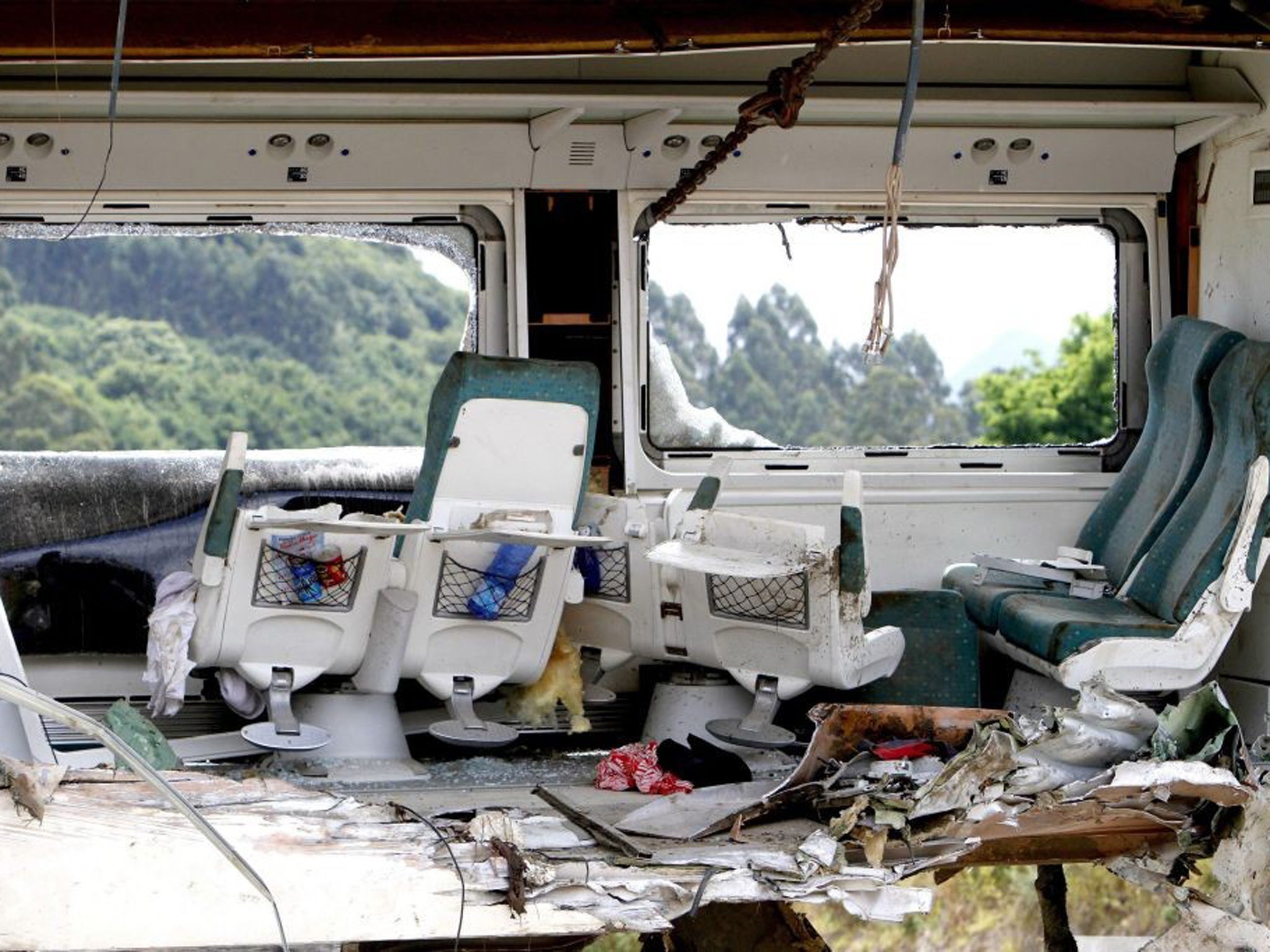Pensioners, students, a footballer...Galicia counts victims of disaster

Your support helps us to tell the story
From reproductive rights to climate change to Big Tech, The Independent is on the ground when the story is developing. Whether it's investigating the financials of Elon Musk's pro-Trump PAC or producing our latest documentary, 'The A Word', which shines a light on the American women fighting for reproductive rights, we know how important it is to parse out the facts from the messaging.
At such a critical moment in US history, we need reporters on the ground. Your donation allows us to keep sending journalists to speak to both sides of the story.
The Independent is trusted by Americans across the entire political spectrum. And unlike many other quality news outlets, we choose not to lock Americans out of our reporting and analysis with paywalls. We believe quality journalism should be available to everyone, paid for by those who can afford it.
Your support makes all the difference.Antonio Reyes had set off on Wednesday with his wife Rosa Quijano and their daughter Fátima to meet friends in Santiago de Compostela.
The group they were meeting had just finished walking the arduous road trodden by pilgrims for centuries.
With them on board the train from Madrid were two couples, Esperanza Márquez and Francisco García, and Ignacio Bustamante and Josefa Álvarez. They were all looking forward to a long weekend beginning on Thursday with the feast of St James the Apostle, Galicia’s biggest Christian festival.
Of the seven people who caught that train, only Josefa and Fátima – who suffers from Down’s syndrome – survived. The rest died when the train tore itself from the rails two miles outside Santiago station on Wednesday night.
It is now known that pensioners, students, teachers, mechanics and footballers were among the 80 people who died in Spain’s worst train disaster in more than 40 years. Most were looking forward to the traditional mid-summer feast featuring pulpo a la Gallega, a local octopus dish. Instead, many in Galicia were widowed or orphaned and the whole of Spain went into mourning.
Mr Reyes was 60 and about to retire as a schoolteacher, while his wife Rosa worked as a bank clerk. Mr Bustamante worked at the town hall in Cádiz, where all seven originated from, and was well known for helping to organise the southern port city’s annual Easter processions. Ms Márquez and her husband Mr García also worked as teachers.
A former pupil of Ms Márquez and Mr García, who gave his name as Abraham, told state television: “At first I couldn’t believe it, and I still can’t get my head round the fact that I won’t see them again. Apart from teachers, they were friends. We used to stop and chat on the street.”
Also on the published list of 67 victims – investigators have yet to confirm the identity of another 13 – was Tomás López Brión, 22, who played as a midfielder for the nearby second division football team Deportivo La Coruña. He had been to pre-season training on Wednesday and boarded the train to be with his family.
Elsewhere a Red Cross volunteer, Edwin Ynoa, got the shock of his life when he learned that among the victims of the crash he was seeking to help was his aunt, Rosalina Ynoa, who had flown over from the Dominican Republic and taken the train to pay him a surprise visit.
For many families who spent Thursday sitting in a support centre set up in a grim business park, the waiting just added to their grief. Many had traipsed between a make-shift morgue set up in a sports centre, Santiago’s main hospital, and government offices to see if missing relatives were dead or merely injured.
Three cousins of Manuel Suárez Rosende, a travelling salesman, waiting outside the Cersia building, were resigned to the worst, even though officials had not been able to confirm his fate. “He went to Madrid on Monday on business, as ever. He usually went by road or plane, but this time he said, ‘I’ll get the train’,” one of the relatives told journalists.
The death toll could still climb, because 32 of the 87 people admitted to hospital are in critical condition.
Subscribe to Independent Premium to bookmark this article
Want to bookmark your favourite articles and stories to read or reference later? Start your Independent Premium subscription today.
Join our commenting forum
Join thought-provoking conversations, follow other Independent readers and see their replies
Comments